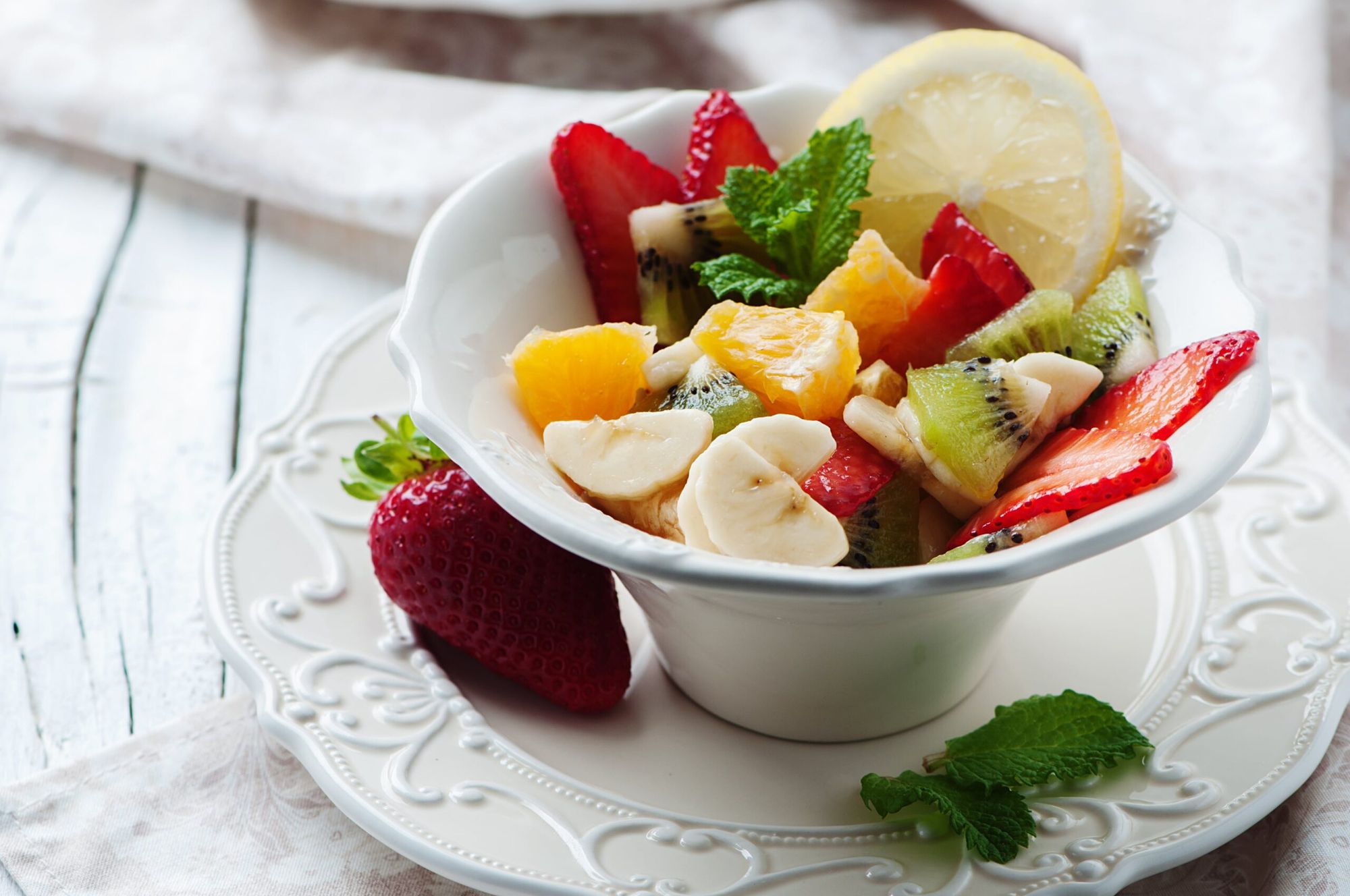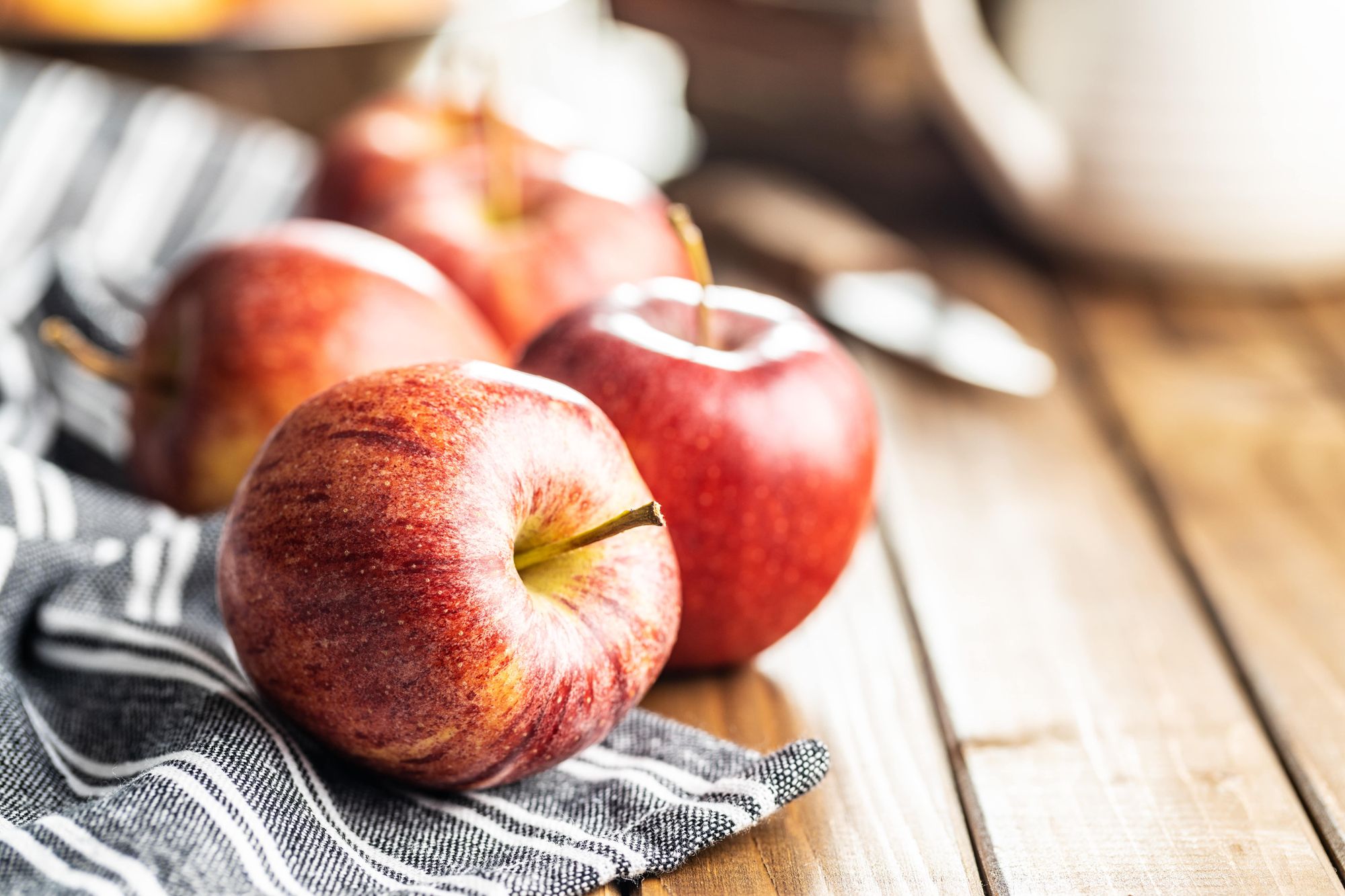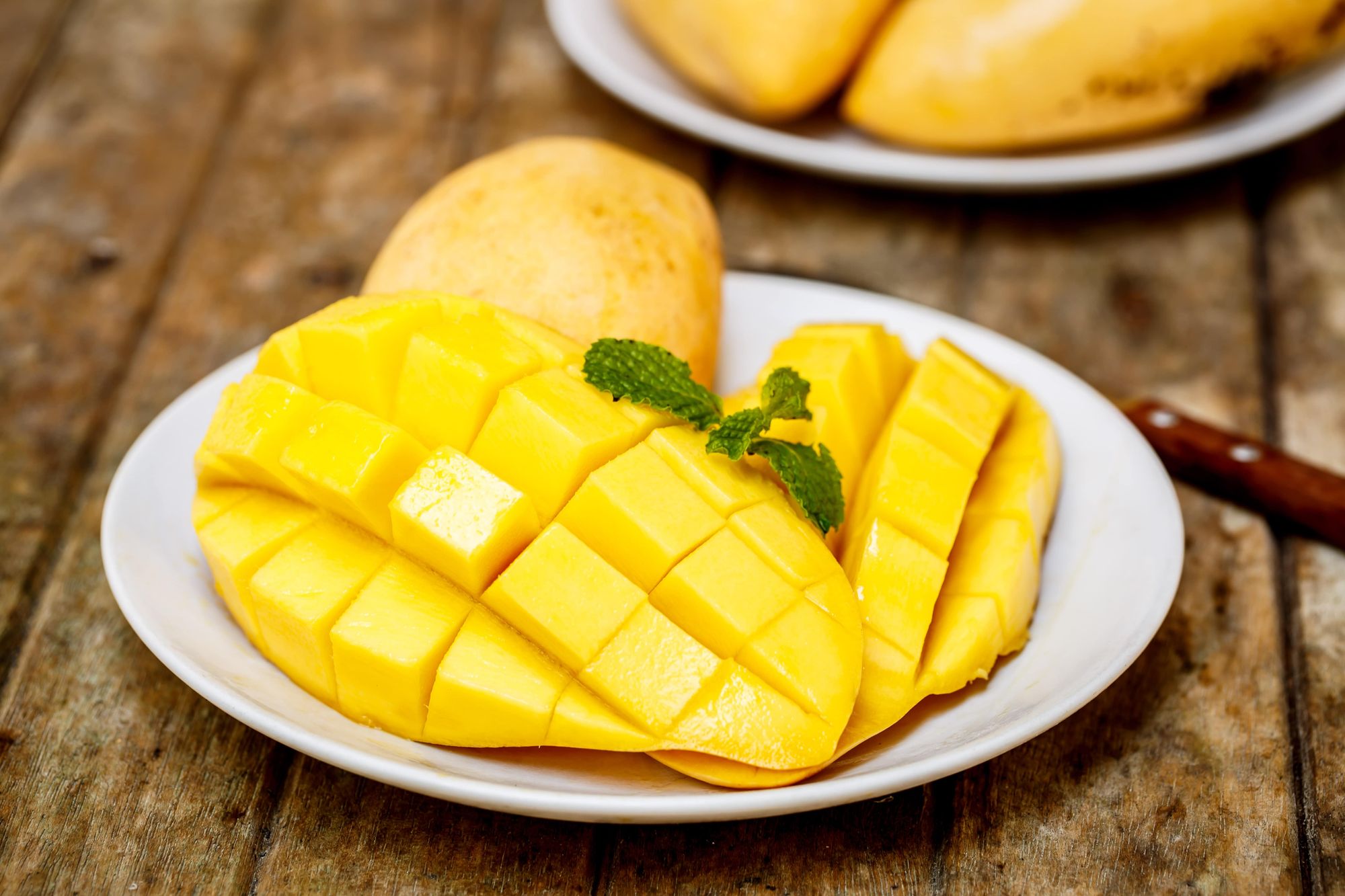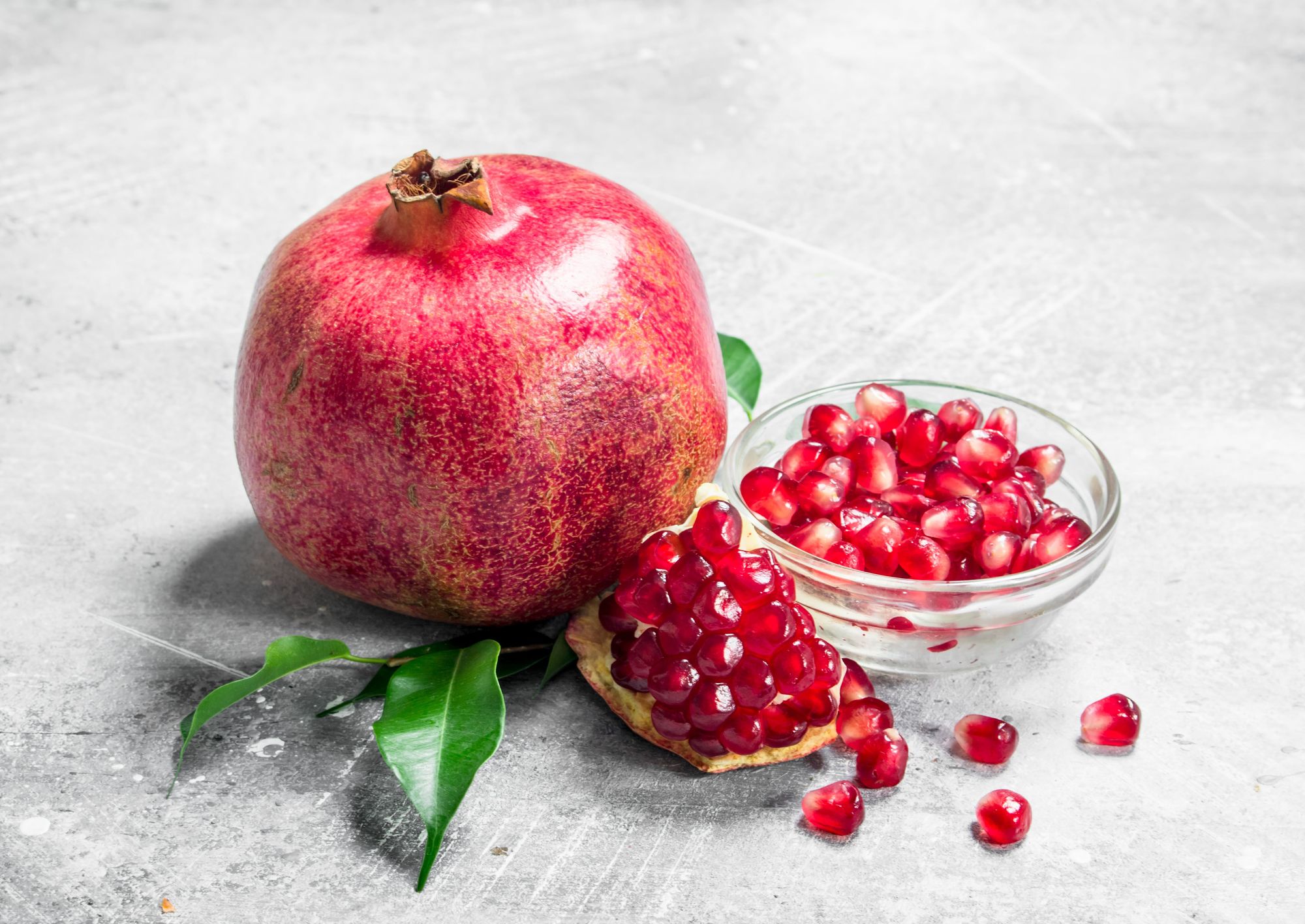
| Table of Contents 1. Healthiest Fruits and Their Unique Health Benefits 2. Blueberries 3. Apples 4. Pineapple 5. Watermelon 6. Mango 7. Grapefruit 8. Avocado 9. Pomegranate |
Fruit is regarded as one of the healthiest foods to eat, but some types of fruit are healthier than others. 8 of the healthiest fruits out there will be discussed in this article.
Fresh, organic fruit can give you an instant boost of energy when your stomach starts to rumble. Not only does ripe fruit taste great, but fruit is also packed with micronutrients, vitamins and antioxidants to help keep you feeling your healthiest.
From skin benefits to cancer-fighting properties and everything in between, there are many reasons why fruit is an important part of any diet.
Alongside vegetables, fruit is highly recommended as part of a healthy, balanced diet. The recommendation to get at least 5 servings of fruit and vegetables each day has even prompted dietary trends such as cold-pressed juicing, and smoothie bars.
However, some fruits are definitely better for you than others.
While fruit provides a lot of health benefits in virtually any form, certain types of fruit have significant drawbacks, such as high levels of natural sugar and higher calories.
Below, we’ll overview 8 of the healthiest fruits, and why.
Healthiest Fruits and Their Unique Health Benefits
The healthiest fruits for your diet will depend heavily on your nutritional goals. For instance, if you’re low on potassium or deficient in vitamin K, you might benefit from eating more grapes. Alternatively, if you’re searching for an extra dose of vitamin E, you may want to stock up on olives.
You can find out whether or not you have a genetic risk of having higher needs of certain vitamins with a DNA test from CircleDNA. Due to genetics in part, some people have trouble absorbing certain vitamins and minerals, and therefore need to consume more of specific foods to avoid a deficiency. This information will be included in your diet and nutrition reports from CircleDNA, and you’ll also receive hundreds of other DNA insights including genetic personality traits, success traits, genetic skin traits, and more. The nutrition reports are among the most useful, because it helps you plan the right diet.
In general, here are some of the healthiest fruits out there:
1. Blueberries
Blueberries are considered a superfood because they’re that beneficial to your health. While many berries have a number of benefits, blueberries are particularly rich in antioxidants such as anthocyanin, which fights free radicals and disease.
Getting more anthocyanins into our diet can help tackle issues such type 2 diabetes, high blood pressure, obesity, and can potentially help prevent certain kinds of cancer. For those worried about cognitive decline, studies also indicate that blueberry supplementation might help promote memory retention.
Blueberries can even assist with your post-workout recovery. A study in New Zealand found these berries may help muscles repair themselves after exercise.
As an added bonus, blueberries are low in calories, and easy to eat.

2. Apples
Easily accessible and affordable all over the world, apples are often a go-to choice for anyone trying to increase their fruit intake. One of the most significant benefits of apples is their high fiber content. The average granny smith contains about 2.6 grams of dietary fiber, which can help with satiety, and digestion.
Apples are also an excellent source of polyphenols, which are the powerful disease-fighting compounds found in fresh produce. Studies have linked apples to everything from better heart health, to improved weight control, and even a reduced risk of stroke.
Notably, there is a difference between red and green apples. While both have similar levels of vitamin C and fiber, green apples can be lower in carbs and calories, while red apples are higher in beta carotene.
There’s a reason for that famous expression, An apple a day keeps the doctor away.
3. Pineapple
Easily one of the most popular types of tropical fruit, pineapples are refreshing and delicious. Although they are one of the higher calorie fruits, the nutritional benefits make it worth it.
165 grams of pineapple will provide around 88% of your daily recommended value of vitamin C, and approximately 73% of your manganese requirements. Notably, manganese is more than just an antioxidant, it can also support metabolic function and blood sugar regulation.
One of the most valuable components of pineapple is bromelain, which is a unique enzyme capable of helping support healthy digestion and even reduce inflammation.
As an added benefit, pineapple contains various polyphenols with anti-inflammatory and antioxidant properties, to help fight against cancer and disease.
4. Watermelon
If you’re exercising more during the summer and struggling to stay hydrated, stock up on watermelon. Watermelons are about 92% water, which is part of the reason for their name. However, they do a lot more than just keep your moisture levels balanced.
The average watermelon is brimming with antioxidants such as beta carotene, vitamins A and C, and lycopene. Lycopene can significantly reduce inflammation and oxidative stress. You can also find various other nutrients in watermelon, such as potassium and magnesium.
Even the white section of the watermelon rind can be beneficial. This component contains citrulline, which is converted into arginine in the body – helpful for protecting your internal organs.

5. Mango
If you’re feeling exotic, mango is another fantastic fruit to add to your diet. Mangoes are packed full of healthy micronutrients and polyphenols. A few slices of mango in your smoothie will give you a dose of vitamins A, C, E, B6, and K. Mangoes also contain folate and fiber.
Mangoes are excellent for anyone attempting to increase their antioxidant intake as well. There’s a unique substance called “mangiferin” in mangoes, which can defend your cells from various issues, and reduce your risk of heart disease, Parkinson’s and type 2 diabetes.
As an added bonus, mangoes are relatively low in fat, though they can have slightly higher levels of sugar than some fruits.
6. Grapefruit
Half a grapefruit is a perfect way to start your morning. Grapefruit is packed full of vitamin C, as well as beta carotene, fiber, and potassium. Eating grapefruit may also help you to manage your weight more effectively if you’re trying to slim down.
One study found when people ate half of a grapefruit prior to their meals, they lost around 3.6 pounds in 12 weeks. Another report linked grapefruit consumption to better waist circumference, lower body mass index, and reduced inflammation.
Grapefruit is rich in lycopene, which is considered to be an effective tool at reducing cancer risk. These fruits are also low in calories.
7. Avocado
Yes, avocado is a fruit, and if you didn’t know that – you’re not alone. There are plenty of reasons why avocados are so popular. They’re widely considered one of the healthiest fruits available, and yes they contain fat, but it’s a healthy fat. The most significant benefits of avocados are often linked to their healthy monounsaturated fat content – a substance great for the heart.
Avocados are also loaded with plenty of omega-3 fatty acids, which reduce your risk of heart disease, and contain potassium to help manage blood pressure. Avocados include B vitamins, vitamin C, and even fiber to improve digestion.
The key to eating avocados the healthy way is to monitor your intake. Remember that around 150g of avocado can contain 240 calories. With this in mind, it might be worth saving half of your avocado for tomorrow, or sharing it with a family member.

8. Pomegranate
Pomegranates might be a little trickier to cut up and prepare than some of the other healthy fruits on this list, but they’re worth the additional effort. Pomegranates are packed with antioxidants which help to fight against free radicals and disease.
Eating pomegranate will also give you access to a range of fantastic compounds such as tannins, flavonoids, and lignans, which can reduce inflammation. Some studies even suggest pomegranates and pomegranate juice can reduce systolic blood pressure. Another study found people who drank around 8.5 ounces of pomegranate juice per day for a period of 12 weeks reduced their inflammation markers significantly.
References
- Anthocyanins and Human Health—A Focus on Oxidative Stress, Inflammation and Disease (Hollie Speer, Nathan M. D’Cunha, Natalie I. Alexopoulos, Andrew J. McKune & Nenad Naumovski) https://www.ncbi.nlm.nih.gov/pmc/articles/PMC7278778/
- Blueberry Supplementation Improves Memory in Older Adults (ROBERT KRIKORIAN, MARCELLE D SHIDLER, TIFFANY A NASH, WILHELMINA KALT, MELINDA R VINQVIST-TYMCHUK, BARBARA SHUKITT-HALE & JAMES A JOSEPH) https://www.ncbi.nlm.nih.gov/pmc/articles/PMC2850944/
- Effect of New Zealand blueberry consumption on recovery from eccentric exercise-induced muscle damage (Yanita McLeay , Matthew J Barnes, Toby Mundel, Suzanne M Hurst, Roger D Hurst & Stephen R Stannard ) https://pubmed.ncbi.nlm.nih.gov/22564864/
- Granny Smith Apple (University of North Dakota) http://www.nutrition.und.edu/foodpro/label.asp?locationNum=04&locationName=&dtdate=4%2F7%2F2017&RecNumAndPort=201075%2A1
- Apples and cardiovascular health–is the gut microbiota a core consideration? (Athanasios Koutsos, Kieran M Tuohy & Julie A Lovegrove) https://pubmed.ncbi.nlm.nih.gov/26016654/
- Green Apples VS. Red Apples (Tufts Health & Nutrition Letter) https://www.nutritionletter.tufts.edu/ask-experts/green-apples-vs-red-apples/
- Pineapple, raw (U.S. DEPARTMENT OF AGRICULTURE) https://fdc.nal.usda.gov/fdc-app.html#/food-details/1102688/nutrients
- The Essential Element Manganese, Oxidative Stress, and Metabolic Diseases: Links and Interactions (Longman Li & Xiaobo Yang) https://www.ncbi.nlm.nih.gov/pmc/articles/PMC5907490/
- Pineapple (Ananas comosus): A comprehensive review of nutritional values, volatile compounds, health benefits, and potential food products (Maimunah Mohd Ali, Norhashila Hashim, Samsuzana Abd Aziz & Ola Lasekan) https://pubmed.ncbi.nlm.nih.gov/33233252/
- Watermelon lycopene and allied health claims (Ambreen Naz, Masood Sadiq Butt, Muhammad Tauseef Sultan, Mir Muhammad Nasir Qayyum & Rai Shahid Niaz) https://www.ncbi.nlm.nih.gov/pmc/articles/PMC4464475/
- Mango, raw (U.S. DEPARTMENT OF AGRICULTURE) https://fdc.nal.usda.gov/fdc-app.html#/food-details/1102670/nutrients
- Multifaceted Health Benefits of Mangifera indica L. (Mango): The Inestimable Value of Orchards Recently Planted in Sicilian Rural Areas (Marianna Lauricella, Sonia Emanuele, Giuseppe Calvaruso, Michela Giuliano & Antonella D’Anneo) https://www.ncbi.nlm.nih.gov/pmc/articles/PMC5452255/
- Consumption of grapefruit is associated with higher nutrient intakes and diet quality among adults, and more favorable anthropometrics in women, NHANES 2003–2008 (Mary M. Murphy, Leila M. Barraj & Gail C. Rampersaud) https://www.ncbi.nlm.nih.gov/pmc/articles/PMC4016745/
- The effects of grapefruit on weight and insulin resistance: relationship to the metabolic syndrome (Ken Fujioka , Frank Greenway, Judy Sheard, Yu Ying) https://pubmed.ncbi.nlm.nih.gov/16579728/
- Lycopene in cancer therapy (Vagish Kumar Laxman Shanbhag) https://www.ncbi.nlm.nih.gov/pmc/articles/PMC4832910/
- Avocados, raw, all commercial varieties (U.S. DEPARTMENT OF AGRICULTURE) https://fdc.nal.usda.gov/fdc-app.html#/food-details/171705/nutrients
- Antioxidant activity of pomegranate juice and its relationship with phenolic composition and processing (M I Gil, F A Tomás-Barberán, B Hess-Pierce, D M Holcroft, A A Kader) https://pubmed.ncbi.nlm.nih.gov/11052704/
- The effects of pomegranate juice consumption on blood pressure and cardiovascular health (Caroline Bell Stowe) https://pubmed.ncbi.nlm.nih.gov/21457902/
- Effects of pomegranate juice consumption on inflammatory markers in patients with type 2 diabetes: A randomized, placebo-controlled trial (Golbon Sohrab, Javad Nasrollahzadeh, Hamid Zand, Zohreh Amiri, Maryam Tohidi & Masoud Kimiagar) https://pubmed.ncbi.nlm.nih.gov/24949028/





